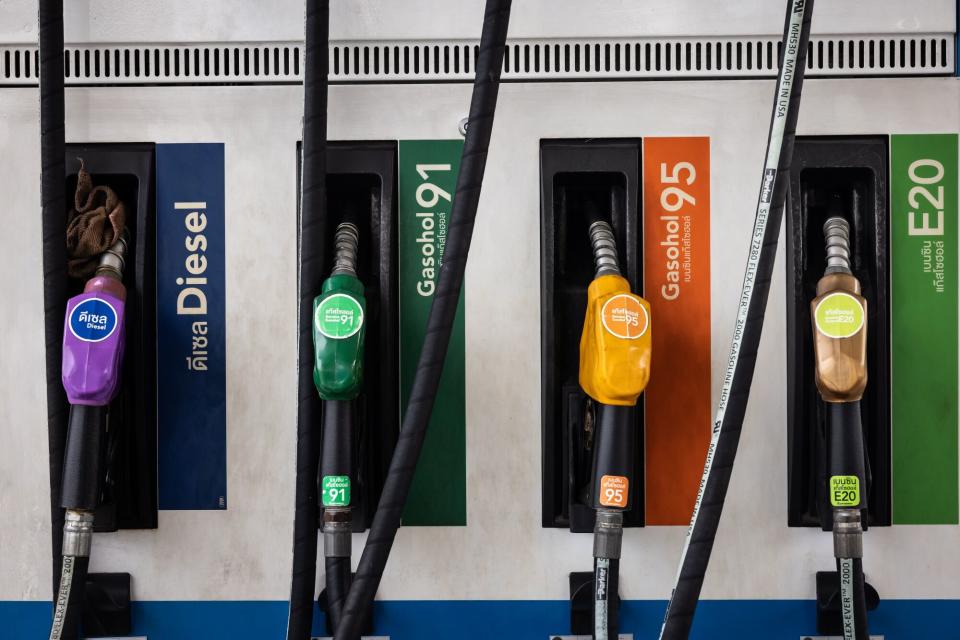Asia’s Fuel Subsidies Are Falling Victim to Budget Pressures
(Bloomberg) -- Budget pressures are forcing governments across Southeast Asia to rethink fuel subsidies, risking political backlash and another inflation blow to their economies.
Most Read from Bloomberg
Biden Struggles to Contain Mounting Pressure to Drop Out of Race
Kamala Harris Is Having a Surprise Resurgence as Biden’s Campaign Unravels
China Can End Russia’s War in Ukraine With One Phone Call, Finland Says
Thailand and Malaysia have let diesel prices climb in the past weeks to ease the burden on public finances as global crude prices rise. Even Indonesia is considering to rationalize fuel subsidies to free up money for new stimulus programs. Most have been met with resistance from citizens wary this could push up prices of basic necessities, from transport to food.
While inflation remains the biggest risk for these economies as they are weaned away from artificially cheap diesel, petrol and cooking gas, the moves could also exact a political toll. Brewing public discontent will test policymakers’ mettle in pursuing plans of broader fuel subsidy cuts to shield investment-grade ratings.
Thai Prime Minister Srettha Thavisin’s approval ratings are already slumping, and a flare-up in inflation also weakens the case for interest-rate cuts that he’s long been pressuring the central bank for.
Thai truckers are planning a protest to demand the government bring the diesel price cap back to 30 baht ($0.82) per liter. In Malaysia, even lawmakers from the ruling coalition have criticized the fuel subsidy reforms, saying it’s forcing businesses to shut.
Yet Prime Minister Anwar Ibrahim has touted the economic benefits of being fiscally prudent. He’s cited the reaffirmation of Malaysia’s sovereign credit score by S&P Global and Fitch Ratings as a reflection of how well his government is managing the economy — something that’s key to attracting investors.
The potential fiscal benefits are sizable too. Malaysia has the most to gain among its neighbors as fuel subsidies cost 2% of gross domestic product in 2023 or 35 billion ringgit ($7.4 billion), according to a Bank of America report.
Annual savings could be substantial once the government targets the most widely-used RON95 gasoline later this year. That will be crucial as Malaysia struggles to get its finances in order after the pandemic, aiming to wrangle its budget deficit from 5% of GDP last year to 3% by 2026-2028. The resulting higher energy prices might likely keep Bank Negara Malaysia on an extended pause when it reviews monetary policy settings next week.
Read: Malaysia Spending Shows Fuel Subsidy Cuts Urgent, Says Citi
Meanwhile, 110 billion baht worth of liabilities in Thailand’s state oil fund have pushed the government to steadily lift price caps on diesel.
“With the Oil Fuel Fund facing strain and budget revenues falling behind target year to date, it’s hard to rule out a further upward adjustment to diesel prices after the current 33 baht per liter cap ends on July 31,” said Krystal Tan, an economist at Australia & New Zealand Banking Group.
Inflation Pain
There will inevitably be price pain, especially as energy costs stay volatile. Oil prices are more than 10% higher than at the start of this year as output curbs by OPEC+ continue to rein in global supplies. While subsidies or price caps can protect consumers from the brunt of fuel costs, they typically move in tandem with crude prices.
With Thailand’s higher diesel prices coinciding with a tourism rebound and the government’s cash handout program, headline inflation could jump to 0.9% for the full year 2024 from -0.1% in January-May, said DBS Bank Ltd. economist Han Teng Chua.
That may dissuade the Bank of Thailand from loosening monetary reins just yet and hold its policy rate at 2.5% for the rest of the year, Chua said.
For Malaysia, HSBC Holdings Plc estimates headline inflation at 2.7% for 2024 and 3% next year from just 1.8% in January-May. It scrapped its call for a 25-basis point cut in early 2025, seeing instead a prolonged rate pause or even a greater chance of a hike.
“We believe more upside risks will likely materialize in 2025 once subsidies on RON95 fuel start, also in tandem with a 13% rise in civil servants’ wages from this December,” said HSBC economist Yun Liu.
While fiscal prudence is key to economic health, rolling back subsidies especially in developing nations weigh on households already feeling the pinch.
Malaysian fisherman Fairuz Ahmad, 47, is worried about his expenses despite receiving diesel subsidies for when he goes out to sea. “Will the cost of other things such as fishing nets, auto services and basic food items also rise because of the diesel subsidy removal?”
--With assistance from Suttinee Yuvejwattana, Kok Leong Chan, Rachel Cicilia and Serene Cheong.
Most Read from Bloomberg Businessweek
Dragons and Sex Are Now a $610 Million Business Sweeping Publishing
The Fried Chicken Sandwich Wars Are More Cutthroat Than Ever Before
For Tesla, a Smaller Drop in Sales Is Something to Celebrate
©2024 Bloomberg L.P.


